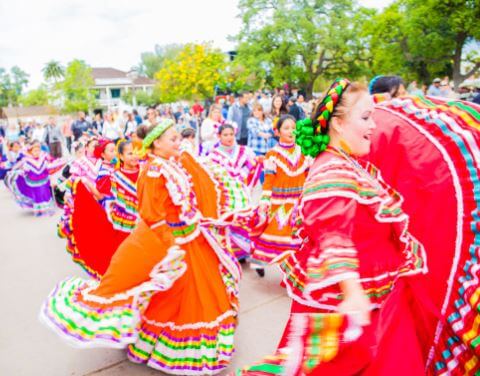I recently got invited to a Cinco de Mayo party that a friend of a friend was throwing, and I couldn’t believe how we Americans have really embraced May 5th as our own honorary holiday (any reason to have a margarita or two is a good reason, right?!). So, I’m reading the invitation and at the top it says, “Dia de la independencia” (Day of Independence). Well, for some reason this didn’t seem correct so I asked around and discovered that was a pretty common belief in our neck of the woods. So, I decided I would take 5 and find out what 5/5 was really all about!
(First, Independence Day in Mexico is September 16 just so we’re all clear on that!)
Mexico Defaults to Europeans
In 1861, Benito Juárez was elected president of Mexico and inherited a country that was in financial ruin after years of internal strife. It was so bad that the new president was forced to default on debt payments to European governments.
In response, France, Britain and Spain sent naval forces to Veracruz, Mexico, demanding repayment. Britain and Spain negotiated with Mexico and withdrew their forces.
France, ruled by Napolean III, however, did not. Instead it wanted to carve an empire out of Mexican territory, so in late 1861, a well-armed French fleet stormed Veracruz, landing a large force of troops and driving President Juárez and his government into retreat.
The Battle of Puebla
Certain that success would come swiftly, 6,000 French troops under General Charles Latrille de Lorencez set out to attack Puebla de Los Angeles, a small town in east-central Mexico. From his new headquarters in the north, Juárez rounded up a scrappy force of 2,000 loyal men, led by Texas-born General Ignacio Zaragoza, and sent them to Puebla to fortify the town and prepare for the French assault.
From daybreak to early evening the Mexican soldiers fought off the French who finally retreated after losing nearly 500 soldiers (fewer than 100 Mexicans had been killed!).
Although not a major strategic win in the overall war against the French, Zaragoza’s success at the Battle of Puebla on May 5 was a great symbolic victory for the Mexican government and bolstered the resistance movement. In 1867, France finally withdrew completely—thanks in part to military support and political pressure from the U.S. (which was now able to help since the Civil War had finally ended).
The same year, Austrian Archduke Ferdinand Maximilian, who had been installed as emperor of Mexico in 1864 by Napoleon, was captured and executed by Juárez’s forces. Puebla de Los Angeles was renamed for General Zaragoza, who died of typhoid fever months after his historic triumph.
Cinco de Mayo in the U.S. vs. Mexico
Now in the U.S., cities from coast-to-coast celebrate Cinco de Mayo with parades, parties, neighborhood gatherings, and plenty of margaritas and amazing Mexican dishes.
In Mexico, the celebration of Cinco de Mayo primarily occurs in the state of Puebla (with a few smaller celebrations throughout the country).
So, if we’re taking over their holiday, at least we now know what we’re celebrating!
Saludos!




